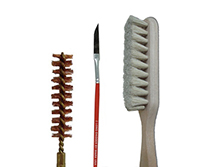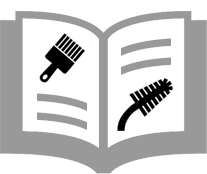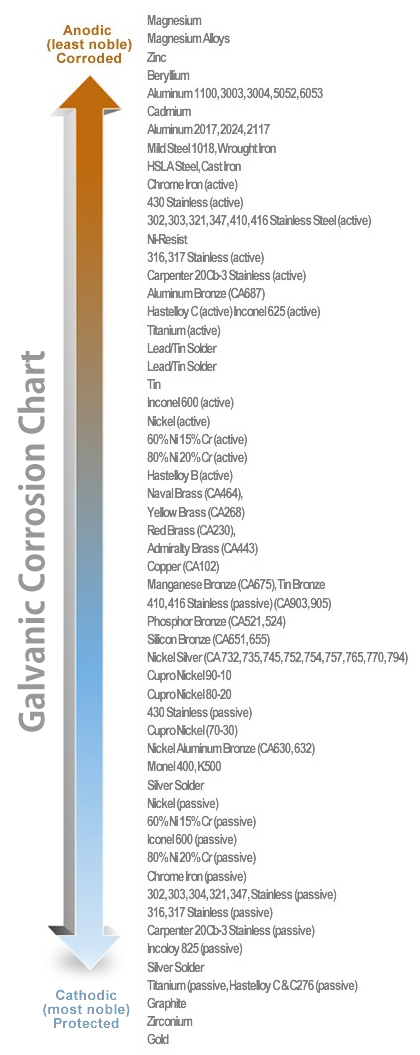What is Galvanic Corrosion?
Galvanic corrosion is caused when two dissimilar metals are in a conductive path. To determine whether two metals are dissimilar enough to cause corrosion, it is necessary to look at the Anodic Index. The higher the difference between metals in the Anodic Index the more dissimilar the metals.
When two dissimilar metals and an electrolyte meet, a battery forms, and one of the metals – the least “noble” of the metals – corrodes slower than it would if it were not in that environment.
Galvanic corrosion can cause serious damage. For instance, because saltwater is an effective electrolyte, boat parts can corrode if a dissimilar metal is present. If not properly addressed, the corrosion can be so bad that the part no longer functions.
Can Brushes Cause Galvanic Corrosion?
Metal and wire brushes are made from a broad range of materials. If a metal brush is used in a manufacturing, cleaning or other process and comes in contact with a dissimilar metal in the presence of an electrolyte, galvanic corrosion can occur.
For example, when stainless steel brushes are used on titanium parts, corrosion often occurs. That is why we recommend using titanium brushes on titanium parts. Using brushes made of pacified stainless steel is an alternative to titanium brushes. Pacified stainless steel is stainless steel coated in an oxide film.
Choosing the right metal or wire brush for your application is essential if galvanic corrosion is possible. At Gordon Brush, we have a solid understanding of the factors that are necessary to cause galvanic corrosion, and we can recommend brushes for your application that will not corrode or cause corrosion.
How Can Corrosion Be Prevented?
There are many options that can prevent galvanic corrosion. The first is to select metals that are not dissimilar enough to cause corrosion. However, there are other steps that you can take to prevent corrosion from happening, such as:
- Preventing contact with an electrolyte by using plastic, paint, varnish or grease as a barrier.
- Electroplating using gold, silver, nickel or chrome plating.
- Using a direct current power supply to oppose the galvanic current of the “battery” that the dissimilar metals create.
- Using nonconductive materials between the two dissimilar metals
- Using an antioxidant paste made of a metal with a lower nobility
Concerned About Galvanic Corrosion? Contact Gordon Brush
At Gordon Brush, we are pleased to offer recommendations that can help you find the right brush for your application and prevent galvanic corrosion. To speak with our engineers, contact us today.

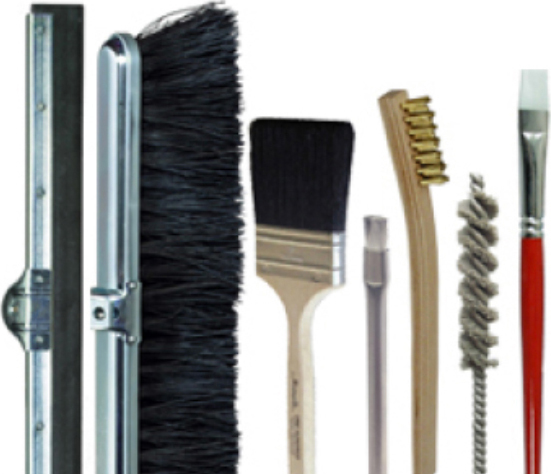
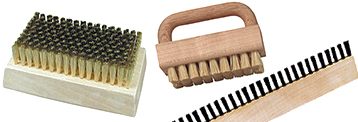 Block Brushes
Block Brushes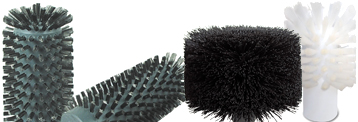 Bore Brushes
Bore Brushes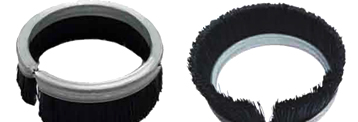 Cup Brushes
Cup Brushes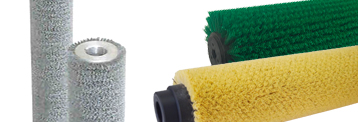 Cylinder Brushes
Cylinder Brushes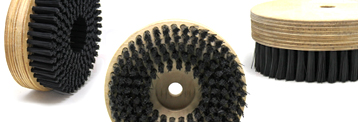 Disk Brushes
Disk Brushes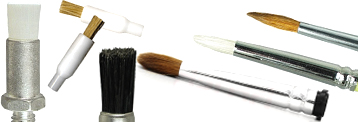 Flow Thru Brushes
Flow Thru Brushes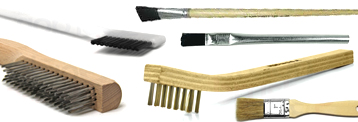 Hand Held Brushes
Hand Held Brushes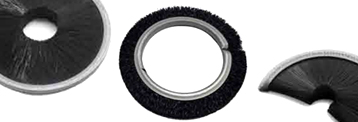 Inward & Outward Disk Brushes
Inward & Outward Disk Brushes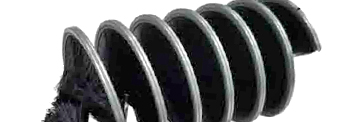 Inward Wound Coil Brushes
Inward Wound Coil Brushes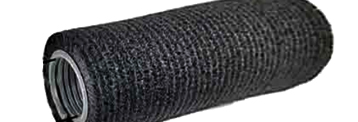 Outward Wound Coil Brushes
Outward Wound Coil Brushes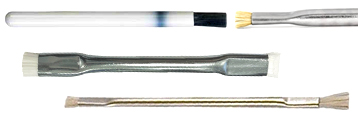 Pencil & Applicator Brushes
Pencil & Applicator Brushes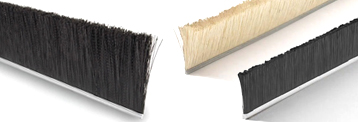 Straight Strip Brushes
Straight Strip Brushes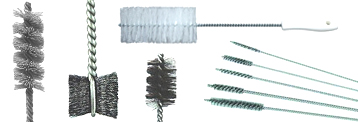 Twisted-In-Wire Brushes
Twisted-In-Wire Brushes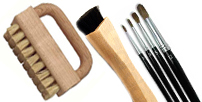 Natural Fill Brushes
Natural Fill Brushes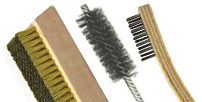 Wire Fill Brushes
Wire Fill Brushes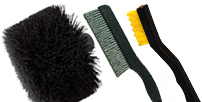 Synthetic Fill Brushes
Synthetic Fill Brushes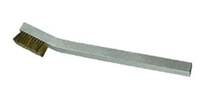 Metal Handle Brushes
Metal Handle Brushes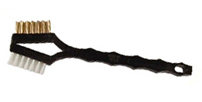 Plastic Handle Brushes
Plastic Handle Brushes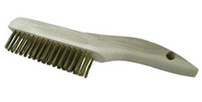 Wood Handle Brushes
Wood Handle Brushes